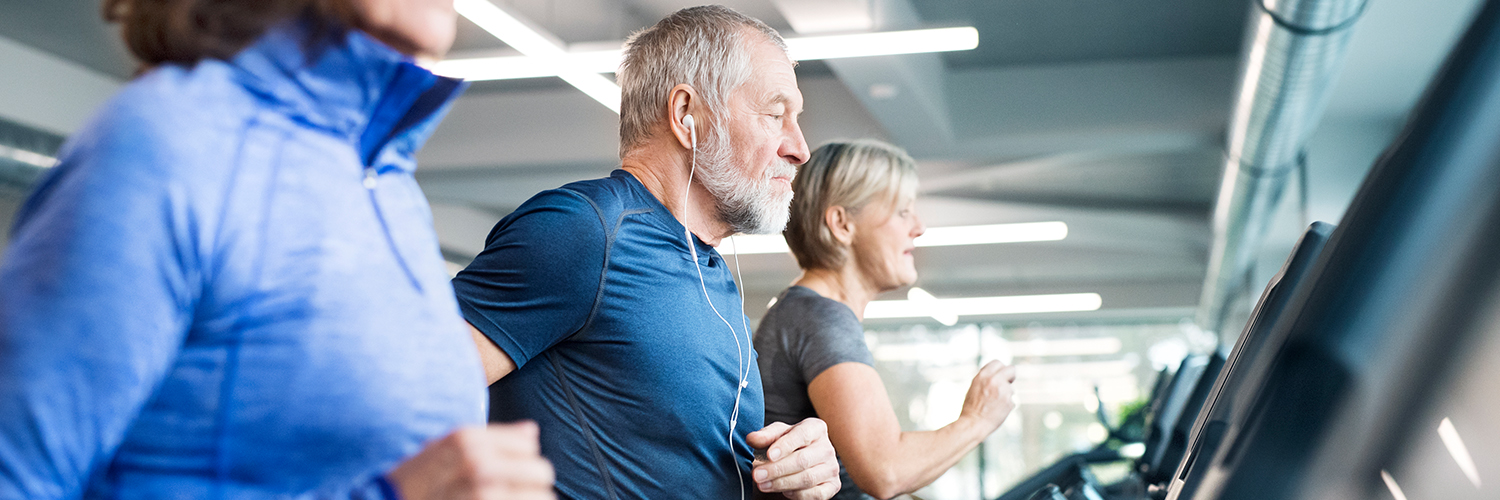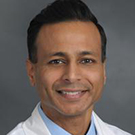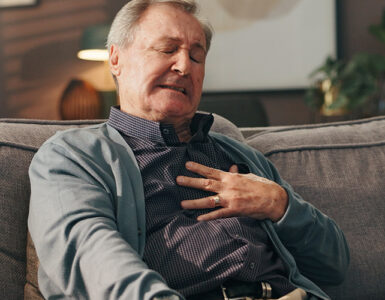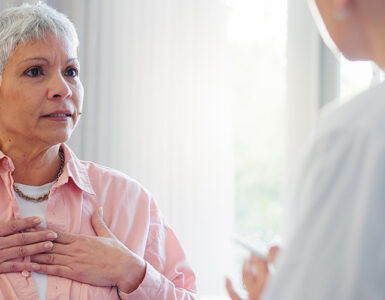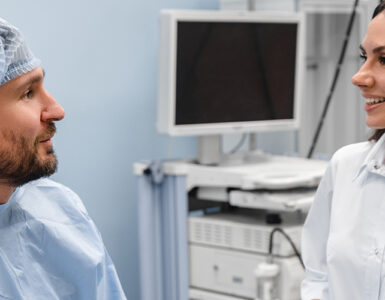In this episode of HEALTH, Yeah!, we explore Stony Brook Medicine’s long-standing partnership with North Suffolk Cardiology and their innovative Intensive Cardiac Rehabilitation (ICR) program. This evidence-based program supports patients recovering from cardiac events with a personalized approach to exercise, nutrition and lifestyle changes. Tune in to learn how ICR helps improve cardiovascular health and empowers patients on their journey to a healthier heart.
The Experts
- Neal Patel, MD: Medical supervisor of the ICR program at North Suffolk Cardiology
- Jennifer Cain, RN: ICR program administrator at North Suffolk Cardiology
- Timothy Brown: Host and Chief Communications and Marketing Officer at Stony Brook Medicine
What You’ll Hear in this Episode
- 00:00 Opening and Introductions
- 1:43 What is a Cardiac Event?
- 2:05 Why is Rehab Important After a Cardiac Event?
- 4:00 About North Suffolk Cardiology and ICR
- 5:18 Lifestyle Changes Post-Cardiac Event
- 7:00 Mental Health: Anxiety and Depression Post-Cardiac Event
- 9:38 History of North Suffolk Cardiology
- 11:40 Resources, Tools and Education
- 13:40 How to Get Involved in North Suffolk Cardiology’s ICR Program
- 15:15 The Intensive Cardiac Rehabilitation (ICR) Program
- 17:00 Clinical Benefits and Outcomes
- 18:25 Patient Response to the ICR Program
- 22:22 How to Enroll
- 23:45 Closing Remarks
Full Transcript
00:00 Opening and Introductions
Announcer
Welcome to HEALTH Yeah!, where experts from Stony Brook Medicine come together to discuss topics ranging from the complex inner workings of an infectious disease to tips and tricks for staying safe and healthy all year long.
Timothy Brown
Continue Reading…
Welcome to HEALTH Yeah! I’m joined today by Dr. Neal Patel, medical supervisor of the ICR program, and Jen Cain, the ICR program administrator. Today we’re going to talk about care following a cardiac event. But before we get into it too deeply, I just want to have each one of you introduce yourself to our audience and tell us a little bit about what you do with the ICR program at Stony Brook Medicine. And Jen, we’ll start with you.
Jennifer Cain, RN
Great. My name is Jennifer Cain. I am the ICR program administrator at North Suffolk Cardiology. I joined the team about two and a half years ago to help launch this program, get it off the ground, and I am loving it so far.
Neal Patel, MD
My name is Neal Patel. I’m one of the managing partners over at North Suffolk Cardiology. For those of you who don’t know us, we are a full service cardiology practice here on Long Island, and we’ve been serving patients here for over 40 years now. We’re actually entering into our 15th year of a fantastic partnership with Stony Brook Medicine. I’m also the medical director of our Intensive Cardiac Rehab program, and I am a board certified interventional cardiologist.
So I spend a lot of time fixing hearts with coronary stents and valves. But honestly, my passion these days is really about cardiac disease prevention, rehab, nutrition, fitness, etc..
1:43 What is a Cardiac Event?
Timothy Brown
So you kind of answered my first question already – What is ICR? – so that’s intensive cardiac rehab, right?
And when we talk about cardiac events, what do we mean by that? Heart attack, but there are other things, too, right?
Neal Patel, MD
Yeah. So cardiac events are a spectrum of diseases or conditions, and it can involve most commonly a heart attack, but it also involves congestive heart failure, cardiac surgery, and the list goes on and on for things that are covered under that topic.
2:05 Why is Rehab Important After a Cardiac Event?
Timothy Brown
Great. So once somebody has one of these cardiac events and it’s life changing, you know, I have a family member who’s gone through that and it’s significant. Why is rehab so important afterwards? You think, okay, I’m getting things fixed, I’m back to my normal life, but it’s not necessarily that easy.
Neal Patel, MD
Yeah, exactly. I mean, it’s like to your point, this is a life changing event. And so when you think about somebody having a cardiac event, about one in four people after they have a cardiac event within the first five years, they will have another cardiac event.
And so our goal is to try to reduce that number. And cardiac rehab is one of the most powerful things we have. If you participate in cardiac rehab, you can reduce your risk for a recurrent event by up to 30 percent. And to put that into perspective, whenever we think about someone having a heart attack, one of the common things we think of is, well, what medications do they get on afterwards with drugs to lower your cholesterol being a number one thing, the benefit of somebody being on a drug that lowers cholesterol is about a 30 percent reduction in recurrent cardiac events. So on par with cardiac rehab.
But an interesting thing to think about and maybe I’ll throw this quiz question to you is somebody has a heart attack and you know that taking a drug that will lower your lipids is important. What percentage of patients leave the hospital on a drug for lowering their cholesterol?
Timothy Brown
Oh gosh. I’m guessing it’s fairly small.
Neal Patel, MD
It’s actually really high. It’s almost 100 percent of people because we’re very good at doing that. We have a lot of metrics. We follow things to make sure that they’re on those drugs. Now, if we think about cardiac rehab, and this is the trick part of the question, how many people actually participate in cardiac rehab after a cardiac?
That’s the low number. It’s only about 25 percent of people. So compared to drug therapy, where we’re almost at 100 percent for things that actually have a similar efficacy, we’re only a 25 percent.
4:00 About North Suffolk Cardiology and ICR
Timothy Brown
I failed the first part of the quiz miserably, but I did better on the second part of the question. So Jen, could just tell us about North Suffolk Cardiology and some of the things that are offered out there. I’ve seen some of the video that exists that we shot, that shows the facility and looks fantastic.
Jennifer Cain, RN
So the program at North Suffolk Cardiology is very special to me. I have a long background in running a cardiac rehab program in the past and the greatest thing about this intensive cardiac rehab is that the patients are also getting education as well as exercise. That’s really our main draw to the program, and different from any other program on Long Island.
So the patient experience is not only do they get to exercise, but they’re also getting a healthy mindset component as well as a nutritional component. And those are the types of things that will keep patients out of the hospital. Exercise is important, but it’s just a small piece of the puzzle.
We really want our patients to be able to get comprehensive care where we are and we’re finally able to offer patients all of those services. So it’s very exciting.
5:18 Lifestyle Changes Post-Cardiac Event
Timothy Brown
And it is so critical, obviously, to change your mindset, I think, after you have a situation like that because you don’t want to do it again for sure. And it does take some lifestyle changes.
What are some of the things, and either one of you can jump in on this, but some of the things that you would suggest to folks, I think probably a lot of the people watching want to prevent that from happening, but there are also people that will be watching this that have had an event.
What are some of the things you would suggest that they would do to change their lifestyles?
Jennifer Cain, RN
First of all, diet is going to be the number one. Changing your diet is very difficult. Patients struggle with that. But at North Suffolk and through the program we have a full time registered dietitian. We’re able to have live cooking classes, which is something really cool.
So patients are able to learn not just by reading a recipe, but to actually see a dietician preparing a healthy meal in front of them, able to ask questions, share facts with each other. I have patients say to another patient, “Hey, where did you find that ingredient or what stores do you shop at for your healthy food choices?”
So that to me is something I really suggest that patients start with – healthy diet, and also realizing the mental health component of a cardiac event. Cardiac events are really traumatizing. They come for the most part as a shock and a surprise. So patients also come in feeling anxious, sad, depressed, things that really need to be paid attention to and taken seriously.
So this program also enables us to have the patients finally get to talk about how the event made them feel. And coming to North Suffolk and meeting with me for the first time, I will tell you, it’s heartbreaking because the patients are telling me for the first time emotionally how they’ve been able to deal with this and what effect it’s having on their lifestyle.
7:00 Mental Health: Anxiety and Depression Post-Cardiac Event
Timothy Brown
You know, I’m so glad you bring up the mental health aspect of this because I think it’s very critical. My father, who’s the person I was talking about earlier three years ago, had a series of heart issues and ended up with a quintuple bypass, you know, just cracked and did the whole thing. And it’s one of the areas where he really struggled and he felt like he was all alone with it.
And I remember talking to him about it and he said, you know, the depression was just overwhelming for him afterwards. And he really, really had some difficult times with it. But I don’t think people really, you know, 30 years ago talked about it as much. So I think it is important. I think it is getting better. But it’s great that you all are offering that.
Neal Patel, MD
Yeah. And it’s not only something to just talk about, you know, when you think about anxiety and depression after you have a cardiac event, it’s one of the biggest risk predictors for having another cardiac event, not just because of the physiologic things that go along with it, but it’s hard to change your lifestyle when you are fearful, when you don’t know what to do, when you’re scared of what’s going to come.
And what Jen said is probably the most important thing, right? Like if somebody has a heart attack, I often picture the first thing in their mind is a treadmill. Like I need to get on that treadmill and I need to start walking. My doctor is going to tell me that’s what I need to do. The reality is exercise is a huge part of the recovery process, but overall lifestyle change, both from the mind and the gut is really, really important.
And one of the hardest things that patients find is you come to the doctor after the event and they say change your diet or the blanket statements like eat a mediterranean diet, or you get a pamphlet that says this is what you should eat. It’s hard to change your life when you’re not being shown how to do those things and the ability to sit in a classroom – we have a great dietician named Christina who actually goes through these recipes.
She’s cooking in real time with these folks. They get to come up, they try all the food, and then you can actually see that eating healthy doesn’t mean it doesn’t have to taste good. But you also see how to do it in real life. It makes a huge difference.
Timothy Brown
Well, and the other aspect of that, which I think is really important, is that, you know, you’re looking at decades and decades of learning and behavior that you have to change overnight. And it’s tough.
Neal Patel, MD
Yeah. We think about it like, how long does it take to recover from a cardiac event? There’s no answer to that question. But the recovery process, in my opinion, is a lifetime of recovery. You’re changing your entire lifestyle to try to prevent something from happening again. And there’s a period of time after the event – it’s usually about six months – where you have a very captive audience because that fear is so real and that is the time that you can motivate someone to change.
But if you don’t create the habits that then persist beyond the six months, you’re almost back to ground zero and you’re starting all over again.
9:38 History of North Suffolk Cardiology
Timothy Brown
So let’s talk a little bit about the history of North Suffolk, because it’s interesting – at one point in time and I don’t know how long ago this was, you decided to create this cardiac rehab program.
Walk us through that. Why did you do it and what led to that?
Neal Patel, MD
Yes, so North Suffolk Cardiology is a very interesting cardiology practice. We’ve actually been around since 1980, not me personally. I was being born in 1980, but my partner started the group back then. So we’ve been out here in Suffolk County for decades.
And one of the things that we’re proud about is we’re often the first to do things. In 1980, my partners were the first full time cardiologists out in Suffolk County, if you can imagine.
And so what we realized when we thought about cardiac rehab was that there was a huge need in the population because there just wasn’t access to these programs. If you had a heart attack and you left the hospital, oftentimes you were told it’s a 12 week, 18 week wait time to get into a program like this, where you’ve lost half of your captive audience time frame at that point.
And so we thought, well, listen, if there’s no availability around, let’s try to do this ourselves. And then we wanted to take it to another level, because when you think about it – there are two types of cardiac rehab, there’s the traditional cardiac rehab, which is what we always think about, which is a guided exercise routine. It’s about 36 sessions that you do after you have a cardiac event.
The problem is in those 36 sessions, you don’t have a lot of time to focus on education, mental health, nutrition. And so there’s a newer program which is called Intensive Cardiac Rehab, approved by Medicare, probably around 2015, I think, that extends the program. So now instead of 36 sessions, you’re up to 72 sessions over after the event.
And a large, large part of it is the education component. And to be able to offer that to our patients is amazing. And we’re the first ones on Long Island to do this. There’s no other program like this on Long Island.
11:40 Resources, Tools and Education
Timothy Brown
And just what a wonderful service, again. Well, two points I have to make. I was in high school in the eighties, so that was one point.
But the other point is, you know, like I said, when my father was hurt, he had the surgeries which were successful, but then they just kind of turned him loose. And again, from a mental health situation, it was a struggle. But even the diet and things like that. My mother worked really hard on it with him to try to, you know, keep him healthy.
But you’re kind of out there on your own.
Neal Patel, MD
You can’t change your lifestyle with a piece of paper. You try to Google something online, you’re hit with a plethora of information. You don’t know where to start, you don’t know what to do, and it’s just a mess.
And then you’re kind of alone, right? You feel in a black box of not knowing what to do, which then kind of compounds the mental aspect of it. Because if you were fearful right after the event, imagine the feeling of not having any idea of what you’re supposed to do. Well, and Dr. Google isn’t always very accurate, too, so it’s nice to be able to come and see somebody like the two of you and come to that facility and actually get the correct information.
Jennifer Cain, RN
And I think a big part of the program that really is special to me is the way we get families involved. So I know you’re speaking about your dad and how overwhelming it was in your mom’s trying to help out. So to kind of segue into our cooking classes and all of the education we offer our patients, we invite family members to come with them.
So I find, especially with older gentlemen, they may not be the ones in the kitchen or doing the food shopping. So we invite them to bring their spouse to the cooking classes, workshops, videos. They don’t get to hook up to a monitor and exercise, but they do get to join in the classroom. And that’s so important because who you live with and who’s helping you with the cooking and doing the food shopping is very important for them to get this education as well.
So we really like it to be a family type of atmosphere, whether it’s a spouse or a brother or a caretaker. We’ve even had patients bring in caretakers at home. We encourage them to bring family members to the sessions.
13:40 How to Get Involved in North Suffolk Cardiology’s ICR Program
Timothy Brown
So what does the process look like? If you have one of these events, you go through the medical side of things, then what happens?
Jennifer Cain, RN
So Dr. Patel takes care of the medical end of things. You’ll most likely be in the hospital, in the cath lab, whether you have a heart attack, a stent, bypass surgery, congestive heart failure is a diagnosis, stable angina, which people don’t realize could be stable chest pain, and a heart transplant. So we also do have valve surgeries, replacement and repairs.
So all of these patients are at Stony Brook or other hospitals on the island. They then can call and find out information about our cardiac rehab program, whether their doc refers them, or they can just give a call themselves to find out about the program. And you don’t have to be a North Suffolk patient or a Stony Brook patient to get involved. We do take outside referrals.
Neal Patel, MD
But one of the points she made that was really, really important, which is – you think that these types of programs are for somebody who had a heart attack or somebody who just had heart surgery. And that’s kind of where you say this ends. It’s not. So if you’re a patient and let’s say you’re a 60 year old person who has known blockages in your heart arteries and you suffer from chest pains, you know, when you try to exercise, you get chest pains.
That’s a criteria to get into the program. If you have a weakening of your heart muscle, if your heart muscle has less than 35 percent and you’re out of breath, that’s another entry point into the program.
So this isn’t just an acute event type of thing. It’s really for a wide audience.
15:15 The Intensive Cardiac Rehabilitation (ICR) Program
Timothy Brown
That’s fantastic. So it’s not a one and done kind of thing too. And I guess, you know, patients work with you for a time period or how does that work?
Jennifer Cain, RN
Yeah, So it’s three times a week. The patients come in and each time they come in they’ll do an exercise and an education component. So there they are for about 2 hours, three times a week for over a 12 week period of time.
So it’s a three month program. If you need a little more time, most insurances will give you up to 18 weeks to actually complete the program, figuring patients may get sick along the way or have a vacation or, you know, doctor’s appointments, things like that.
So it’s a really fair amount of time. It’s a three month program. And, you know, we have patients that need to finish sooner to be able to go back to work. So we work with patients with their schedule. We also offer makeup classes for patients who want to speed up the process. But the typical patient will be with us for about three months.
Neal Patel, MD
One of the best things, though, is at the end of the three months, it doesn’t end there, right? So we create a community of all these patients.
And one of the best parts, you know, there are newer types of things where you can do virtual rehab and those types of things. One of the best benefits of this is to be able to talk to somebody else going through the same exact thing. And so you’re with a cohort of patients that you follow along with over the 12-week period.
And after it’s done, there’s a community. So these patients reach out to each other, they keep in touch and we have events where we get everyone back together so they can see how they’re doing, kind of keep check on each other to make sure people are keeping up with the program. So it’s a great long term thing for patients.
17:00 Clinical Benefits and Outcomes
Timothy Brown
Well, I would imagine people develop friendships not only with caregivers, but with other patients and family members. And so that’s great. I think that’s so important you’re not going through this alone.
What about clinical benefits – can you measure the outcomes of having something like this?
Neal Patel, MD
You can and we’ve actually been tracking it in our program because we don’t want to just say that something is working, we want to prove that it’s actually happening.
And one of our exercise physiologists, Veronica Barrett, she’s great. She’s been tracking all of our data. And so we have a year’s worth of data now that shows proven clinical benefit, which is exercise tolerance. You know, patients from beginning to end of the program, their exercise tolerance goes up by about 25 percent.
We look at nutrition choices. And so from the beginning to the end, healthier nutrition choices go up about 20 percent.
And then from a mental health standpoint, a healthy mindset, there are questionnaires that can gauge this and people get about a 15 percent benefit from beginning to end of the program. So it isn’t just kind of research, you know, statistics – like this is happening in real time.
And then beyond the numbers, I mean, we get to talk to these patients afterwards. So just yesterday I saw a woman who’s in her forties and had a heart attack out of the blue. And when she came to see us, I mean, you can imagine what’s going through her head. Like, how did this happen to me? What’s going to happen to me? She was almost paralyzed with fear from this. And so she entered the program with Jen, and I saw her yesterday.
She’s about two thirds of the way through the program. And it was like seeing a whole new person. You know, the fear in her eyes was not there anymore. She felt comfortable exercising. She knew what she was supposed to eat. It was just an amazing thing to watch.
18:25 Patient Response to the ICR Program
Timothy Brown
So, Jen, Dr. Patel started the answer to the next question, but I did want to ask you about a patient’s reaction, a response to this? I mean, it’s got to be fantastic.
Jennifer Cain, RN
It is. And it’s so overwhelming, but in a great way. Because I really get to see the patients for the first time when they come in for their initial evaluation. And when you see how scared they are and you see what they’ve been through, you just want them to be able to see three months down the line, like I tell them all the time, I wish you could see yourself in three months because sitting in front of me right now to the change of when you finish and graduate this program, it’s amazing.
But when you’re in something and you’re so crippled by fear, it’s really hard to even see to the next day, right? So to me, I get the joy of watching them through the entire program. Come in over those three months and then graduate. And it’s just so rewarding. It really is. And the patients love it.
They cheer each other on. We get really excited about these graduation ceremonies that we have. We give the patients a diploma, we give them a t-shirt, we take pictures. We really go all out because it’s a big accomplishment. I mean, three times a week for three months and really changing your lifestyle is not easy.
Neal Patel, MD
You also see the benefits of the approach. Right? Because I’ve been doing this for 20 years. I’ve been putting stents into people’s hearts and you see a pattern. You’re putting the stent in there fixed and then five years later they come back and another stent is going in, and they’ve done what you’ve told them, which is take your medication, keep your cholesterol low, do those types of things.
But now when you add this component of nutrition and mental health and lifestyle and exercise, that’s the missing piece. Anyone can take a medication, but to do those things, you stop seeing them come back. They don’t come back to the cath lab. We’re not putting in more stents. And so that is a wonderful segue to my next question.
Timothy Brown
Talk about the importance of continued monitoring and care from a physician. How important is it to keep doing that?
Neal Patel, MD
It’s huge on multiple levels, and that’s what we love over at North Suffolk Cardiology is that we offer kind of the full service and full line of cardiac testing and patient care all within one place. But after you finish the cardiac rehab, it doesn’t end there.
So monitoring your labs to make sure that your cholesterol levels are staying where they need to be on a yearly basis, watching your heart function, and then just having a physician there who’s going to motivate you to keep going. Right. That you can always do better.
You know, there’s no perfect point. It’s a continuous evolution towards avoiding these events down the road.
Timothy Brown
So I’ve got to earn my paycheck. How does this connect with Stony Brook Medicine? How important is that?
Neal Patel, MD
It’s huge. You know, our partnership with Stony Brook Medicine, like I mentioned earlier, is 15 years now. And in this health care climate, you don’t see that anymore. You know, everybody’s moving from place to place and different things are happening, especially out here in Suffolk County where we see a bunch of healthcare systems coming out.
But we’ve had a rock steady relationship with Stony Brook Medicine because we truly believe it’s the best hospital on Long Island. And so to be able to tell our patients that, God forbid something happens, that’s the place you’re going to go. And we trust our faculty partners here to take care of you if you’re in the hospital and we’re not around.
And some of the services that Stony Brook Medicine provides that we don’t, it’s a relationship that has been beneficial on both sides and most importantly for all of our patients.
Timothy Brown
You know, I honestly think that’s the true beauty of an academic health system. The fact that you have that ability to collaborate when you need it, and if you don’t need it, you don’t need it.
But you have other physicians, other caregivers that you can work with. And it’s really the continuum of care. I mean, you guys prove that. That’s what you do.
Neal Patel, MD
It’s a public private partnership. And, you know, we live in a climate where there’s public and there’s private. Why do we have to be two separate entities? Because the patients benefit if all the services are available to them.
So I can’t stress enough that I think the future of medicine is this type of partnership.
22:22 How to Enroll
So, Jen, this is the big question. How does a patient enroll in cardiac rehab?
Jennifer Cain, RN
BIg question, but easy question. So patients can simply enroll by calling North Suffolk cardiology. I believe the prompt is number six.
Even if you’re an outside referral and you’re not a patient currently at North Suffolk Cardiology, you can call, we have a unit coordinator named Ashley. She’s fantastic. She will reach out to the referring physician to let them know what type of medical records we need, a prescription, whether or not the patient will need a baseline exercise stress test to start, and she could get that process rolling.
So it’s really simple. As long as you have a qualifying event and your doctor refers you, you could get started in the program.
And most major commercial plans cover cardiac rehab as well as Medicare. So it’s a covered service.
Timothy Brown
Perfect. One last question. Let’s look into the future. What do you see?
Neal Patel, MD
From a cardiac rehab standpoint? I mean, I think the sky’s the limit. You know, my vision would be that nobody’s waiting for this service. So if you come to the hospital, you have a cardiac surgery or you have a heart attack within the timeframe of when you’re supposed to start the program, it should be automatic.
You know, you leave the hospital, you have an appointment to see Jen. She’s going to get you checked in and ready to go, because I really think that no patient should be without this type of service.
And so the hope would be that we can expand access and continue this going down the road.
23:45 Closing Remarks
Timothy Brown
You guys were awesome. It was really good. Thank you for having great information. We appreciate it. Great information from our guests today. Thanks again for taking time to talk to our viewers and listeners.
And remember to subscribe to Stony Brook Medicine’s podcast and videos. We’ll have a lot more great programs like this to help keep you healthy and happy. Thanks again for watching. And I hope everybody has a great day.
Announcer
Stony Brook Medicine is Long Island’s premier academic medical center. We transform lives through scientific discovery, education and care, and we bring together innovative research, advanced education and extraordinary health care expertise to set the standard for how healthy communities thrive. For more information, visit Stony Brook Medicine or follow us on social media.


